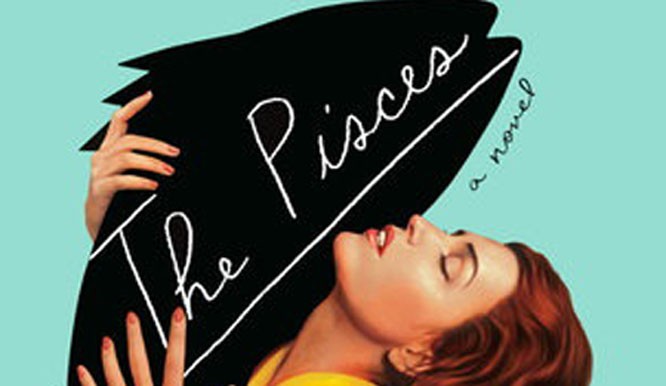
Broder’s debut novel is a dark fantasy offering an insight into the complexities of modern love

At first glance, Melissa Broder’s The Pisces appears to be a deceptively simple tale of heartbreak. If we peel back its multiple layers of realism laced with surreal possibilities, we begin to realise that Broder’s debut novel is a dark fantasy shot through with the piquancy of a psychological drama.
Although the plot bears an uncanny resemblance to the glut of stereotypical romantic sagas that never seem to become stale, there is a touch of originality that makes The Pisces a memorable book.
Following an acrimonious breakup, Lucy, a 38-year-old PhD student based in Phoenix, decides to escape her "cluttered apartment" and spend the summer at her half-sister’s house on the Venice beachfront in Los Angeles. Lucy devotes her time towards caring for her half-sister’s diabetic foxhound and lulls herself into a false sense of security. She views the beach house as a "contemporary glass fortress" that allows her to withdraw from the intricacies of a hostile world that has disappointed her.
Despite her attempts to eject bad memories, Lucy remains painfully aware of the life she has left behind. Her unfinished PhD thesis on the Greek poet Sappho, the tedium of her relationship with Jamie and the turbulence with which it ended, and her battle with depression after the breakup leave a deep imprint on her mind. Even group therapy and her occasional Tinder dates cannot allay her anxieties and offer some semblance of relief.
Amid all the tensions that surround her, Lucy encounters Theo sitting on the beach rocks. She initially believes that he is one of those infamous ‘surfer boys’ who will disappoint her with his arrogance and apathy. With time, Lucy discovers that Theo is both remarkably mature and emotionally available - attributes that are gravely lacking in the other men she has sought comfort in. As their fleeting interactions along the beach morph into a rare emotional intimacy, Theo reveals a truth about himself that makes Lucy question her loyalties to a world she has known and despised: he is a merman.
Written with candour and imbued with almost dreamlike absurdities, The Pisces uses Theo’s revelation as a means of weaving magic realism to what would otherwise remain the story of a woman’s journey to find love.
Broder never allows the reader to doubt Theo’s existence. He is depicted in a realistic manner without the usual clichés. However, Theo’s needs and his idealistic notions of love appear to be similar to the ideals that Lucy has cherished in relationships. This may lead some readers to deduce that Theo is an extension of Lucy’s troubled mind.
The protagonist’s obsession with the merman can be construed as a magnified reflection of her extreme loneliness. As a result, Theo may be a figment of Lucy’s imagination, a crutch that she uses to assuage her fears of finding love. The prospect of a fiery romance with a man who is detached from her own world may offer some consolation for her failures in love. Lucy’s fascination with a man under the sea may also help her cultivate an alternative reality that guarantees a happy ending.
Broder’s narrative provides ample clues that could help readers piece together the fragments of a unique and unexpected series of events. The author doesn’t seem to be interested in airtight explanations or conclusions over the events that occur in Lucy’s life. Instead, the novel is steered by curiosities, and readers are encouraged to engage with unanswered questions and draw their own conclusions.
Through brisk, racy prose, The Pisces offers an indictment of modern love and its many complexities. Broder doesn’t shy away from fleshing out the intimate moments between lovers. There is nothing pornographic in her depictions of love, sex and intimacy. What readers may find are fearless accounts of the lack of intimacy that impact the protagonist in seemingly bizarre ways.
More often than not, Broder insists on making her protagonist deliver long monologues rather than ‘showing’ readers how her life is plagued with challenges. Since The Pisces is a first-person account, we can make allowances for the large chunks of passages where the narrator vents her frustrations and reflects on the problems in her life. But Broder struggles to arrive at a delicate balance between showing and telling. This may compel readers to skim through reams of endless passages where Lucy pours her heart out and settle for those golden moments where Broder’s character interact with one another. Realistic, cogent dialogue lends The Pisces its refreshing cinematic appeal. The characters seem to effortlessly emerge from the page and create some memorable moments.
Fuelled by hope in the power of surreal transformations, this is a book that will be remembered for its bold meditations on love.
The Pisces
Author: Melissa Broder
Publisher: Bloomsbury Publishing
Pages: 274
Price: US$11 (Paperback)